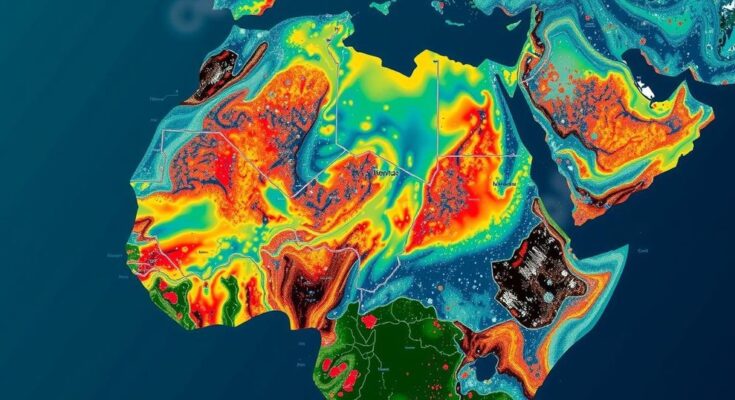A team of international scientists has confirmed that human-caused climate change exacerbated recent devastating rains and floods in several African countries, leading to significant fatalities and displacements. The study highlights the alarming potential for annual extreme rainfall events if global warming continues, urging for improved infrastructure and support at upcoming climate talks.
In recent months, devastating rainfall has resulted in fatal floods across several African nations, including Cameroon, Chad, Niger, Nigeria, and Sudan. A team of international scientists from World Weather Attribution (WWA) attributed these intensified seasonal downpours largely to human-induced climate change. This year, global warming is estimated to have increased the intensity of rainfall in the Niger and Lake Chad basins by approximately 5-20%. The scientists highlighted that if current warming trends persist, such extreme precipitation events could become a yearly occurrence in these regions. Izidine Pinto, a researcher at the Royal Netherlands Meteorological Institute, stated, “Spells of heavy summer rainfall have become the new normal in Sudan, Nigeria, Niger, Cameroon and Chad.” The catastrophic floods have had severe implications, resulting in around 1,500 fatalities and displacing over 1 million individuals in West and Central Africa, as reported by the United Nations aid agency (OCHA). These rainfalls have significantly overwhelmed the existing dam infrastructure in Nigeria and Sudan. Furthermore, WWA projected that should global temperatures reach an increase of 2 degrees Celsius (3.6 degrees Fahrenheit), which could occur as early as the 2050s, regions affected this year could expect such intense downpours nearly every year. The organization called for increased investment in early warning systems and necessary upgrades to dam facilities to better manage these impacts. Joyce Kimutai, a researcher at the Centre for Environmental Policy at Imperial College London, remarked that although Africa has contributed minimally to carbon emissions on a global scale, it faces disproportionate consequences from extreme weather events. She emphasized the importance of the forthcoming COP29 climate talks in November, advocating for meaningful financial support from developed nations to aid the continent.
The impact of climate change is increasingly evident across the globe, with particular severity noted in vulnerable regions such as West and Central Africa. The relationship between human activity and extreme weather phenomena has been a subject of research, with initiatives like World Weather Attribution (WWA) investigating the contributions of climate change to ongoing weather challenges. Recent flooding events serve as a grim reminder of the urgent need for mitigation and adaptation strategies, particularly in areas disproportionately affected despite contributing minimal greenhouse gas emissions.
The exacerbation of rainfall and subsequent flooding in African nations due to climate change underscores the urgent need for global action and support. With projections indicating that such extreme weather patterns could become frequent, it is crucial that investment in infrastructure and early warning systems is prioritized to protect vulnerable populations. Additionally, meaningful commitments from wealthy nations during climate negotiations are essential to address these pressing challenges faced by regions like Africa.
Original Source: www.usnews.com




